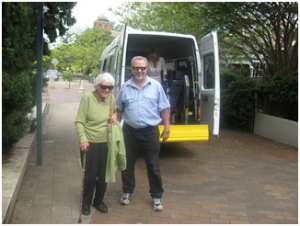 Social advocacy is an emerging movement that brings together several different disciplines in the interest of advocating for change. Although advocacy has traditionally been seen as an act made by an individual, or group of individuals, on behalf of another, less able individual or group of individuals, advocacy goes further into the realm of policy and politics, justice and the legal system, finance and budgeting and also health and healthcare. In recent years, advocacy has grown considerably in the last two areas.
Social advocacy is an emerging movement that brings together several different disciplines in the interest of advocating for change. Although advocacy has traditionally been seen as an act made by an individual, or group of individuals, on behalf of another, less able individual or group of individuals, advocacy goes further into the realm of policy and politics, justice and the legal system, finance and budgeting and also health and healthcare. In recent years, advocacy has grown considerably in the last two areas.
Social advocacy (often called “social justice advocacy”) aims to bring equality to the forefront across a range of issues. The role of the social advocate falls under the umbrella of what is now called public administration, or the role civil servants take on to fairly enact and implement public policy.
There are three facets to the role of a public administrator. First, there is research into current policies, including how they are enacted and overseen, as well as their ultimate effectiveness. Next, there is the actual administration of those policies. Finally, there is the work of assisting those who are affected in understanding both the policies and how they are administered. Learn how social advocates have become today’s policy social workers, as well as how you can possibly get involved.
A Pathway to Social Advocacy
Most individuals who begin a career in social advocacy are already involved in advocacy efforts before they decide to turn their interests into a career. These are the people who are naturally passionate about social justice issues, whether they relate to personal passions for finance, healthcare, law, politics or other areas. If you are one of these people, you may have ties to a political party or lobbying group, with local social welfare nonprofits or with a cultural group that you care deeply about. Translating these special interests into a career typically begins with earning a degree in a related field, such as a masters of public administration online.
Other related degrees can include masters in social work, psychology, law, economics, accounting, teaching, and nursing. In your classes, you will establish a foundation for how current policies formed, the history behind each, and how government and social welfare programs operate today. This information can enable you to understand where your work will fit in the existing system.
Social Advocates Work for Change
Once you graduate with a related degree, such as an RN to BSN online degree, the next step is to prepare a path to a job in your chosen field of social advocacy. If you are a nurse, you might target healthcare, which is an area where many changes are currently being made to a longstanding system. With your education and training, you may work as a public administrator in healthcare, perhaps as a health educator, and learn what are the needs, issues and concerns of those you serve. You can take this knowledge into a career in social advocacy in healthcare in a number of applications. For example, as the nation’s population continues to age, there are niches within healthcare, such as elder care, that might call to you. The work you do as a healthcare social advocate in elder care could potentially improve the quality of life as well as end-of-life options for the elderly.
As a social advocate, you will have the opportunity to hear peoples’ thoughts, desires and concerns, to find vehicles to transmit that information to policymakers and to garner support for the most pressing issues, in order to work toward modifying policies. This way, you are functioning as a social worker does, but on a global policy level rather than on the level of working directly within a certain group or community. As a social advocate, you have the chance to help implement changes that can affect an entire group or community for the rest of their lives.
Image provided by the Mosman Council from Flickr’s Creative Commons
About the Author: Sartin Caroli began his education in the field of public administration but struggled to find his area of strength for several years. He’s now studying for his master’s in public administration after having worked as a social advocate since 2008.











